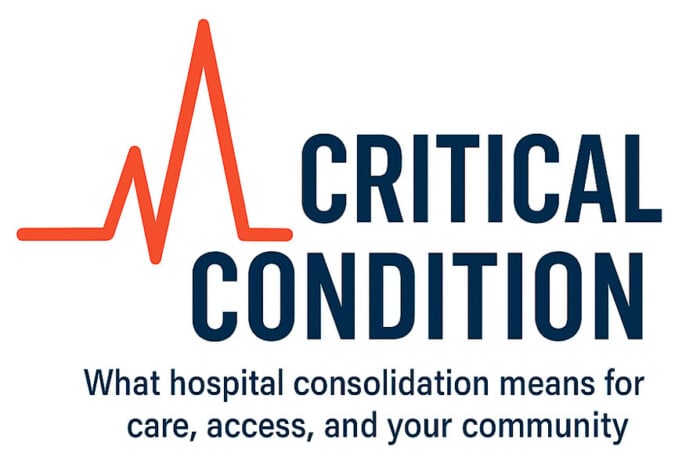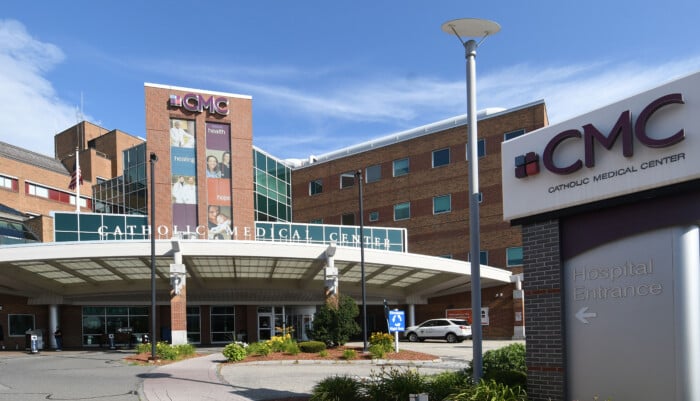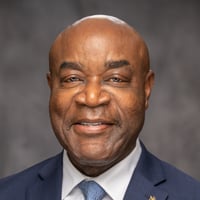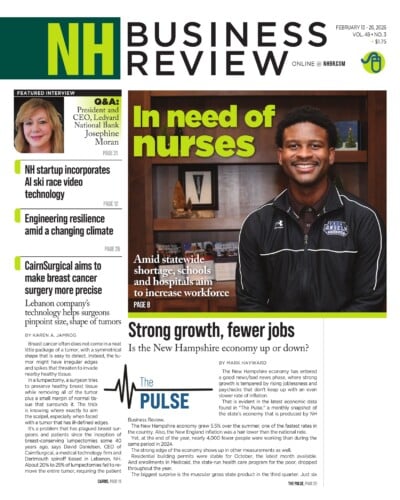New Hampshire’s ‘favorable’ conditions for hospital acquisitions
Why are big out-of-state hospitals eager to make a foray into the New Hampshire health care market? The answer partly lies in the fact that the state is uniquely situated, both geographically and politically.
Access to more patients just across the state border is attractive to hospitals in Massachusetts that have faced uphill regulatory battles in their own state, analysts say. New Hampshire also does not have large employers, like Massachusetts does, with the muscle to push for change in health care costs.
“New Hampshire, despite being small — the patient mix tends to be favorable,” said Josephine Porter, strategic adviser for the NH Center for Justice & Equity. “There’s good health insurance coverage (here) on the commercial side.”
Of New Hampshire’s 1.4 million residents last year, about 62%, 853,000 people, received private health insurance through their employer or by purchasing their own coverage, according to Lucy Hodder, director of Health and Life Sciences Law and Policy programs at the University of New Hampshire’s Franklin Pierce School of Law. Her data shows that 16% had Medicare and 9% Medicaid.
In addition, Porter said, “there is some benefit to looking at New Hampshire because the process isn’t as arduous here as it might be in someplace else.”
A decade ago, New Hampshire got rid of one big regulatory hurdle: the Certificate of Need Board. It required New Hampshire hospitals and clinics to get state permission before building or expanding facilities. New Hampshire formed the board in 1979 but shuttered it in 2016 after a long legislative battle over the board’s pluses and minuses. Critics said it created obstacles by requiring that, before a facility was built, evidence had to be produced to show it was needed.
“There are other states where there are more stringent certificate of need boards and regulatory authorities,” Porter said. “There are many more steps in other states than what New Hampshire has.”
Currently, the state Attorney General’s Office is the only entity overseeing hospital mergers through its antitrust bureau and charitable trusts unit.
The Attorney General’s Office has been ringing the alarm bell over hospital consolidations and their potential to reduce competition for the last several years. In fact, in 2022, it opposed Dartmouth-Hitchcock’s plan to purchase Granite One Health, a combined entity that included Catholic Medical Center in Manchester, saying the move would limit competition.
But earlier this year, Attorney General John Formella said he was compelled to approve HCA’s acquisition of Catholic Medical Center, in part because the Manchester hospital was in such dire financial situation that patients stood to lose services entirely if it shut down.
The Legislature established a trust fund, known as the Healthcare Consumer Protection Trust Fund, and would direct the hospital that is doing the buying to contribute money toward the fund. Under that directive, Beth Israel Lahey, following its purchase of Exeter Hospital in June 2023, was required to deposit $10 million over 10 years into the trust fund. And HCA must pay $7.5 million over 10 years.
In addition to the trust fund, the Healthcare Consumer Protection Advisory Commission was formed to help advise the AG on how to spend and manage that money. Expenditures from the fund need approval from the seven-member commission, the governor and the NH Executive Council. The commission has been meeting monthly since July 2024.
Last November, the commission voted to spend up to $1.6 million from the trust fund for a three-and-a-half-year contract with the University of New Hampshire to create the Center for Studying Healthcare Markets. The goal is to evaluate the impact of health care consolidation and examine regional best practices from neighboring states in New England.
In addition, some are asking the state to establish a patient advocate office to help contain costs and hold the industry accountable.
The health commission has begun holding a series of public hearings, including one planned in Exeter in June and one in Claremont in July.
The first hearing, held May 28 in Rochester, attracted over 75 people, with several HCA employees and a few members from the public showing up to speak.
Nurses and hospital administrators at Frisbie praised the merger in their presentations to the commission, citing positive turnaround data, including shorter wait times at the ER. But members of the public who spoke said facility closures and patients not being properly notified of doctor departures following the Frisbie acquisition had been very difficult for them.
“I have institutional memory of what Frisbie used to be and what it is for my husband who is very ill,” Marsha Miller, an 81-year-old Rochester resident who lives across from the hospital, told the commission. “We have to deal with perceptions, which is that HCA is bad.”
Referring to HCA employees’ favorable comments about the merger, she added: “Nobody knows all of these wonderful things. These changes are not a part of my reality.”
Attorney General Formella, told the audience, “A lot has happened in the health care industry. … And we are going to need to be having a lot of conversation — a lot of thoughtful dialogue about where the state goes from here.”














